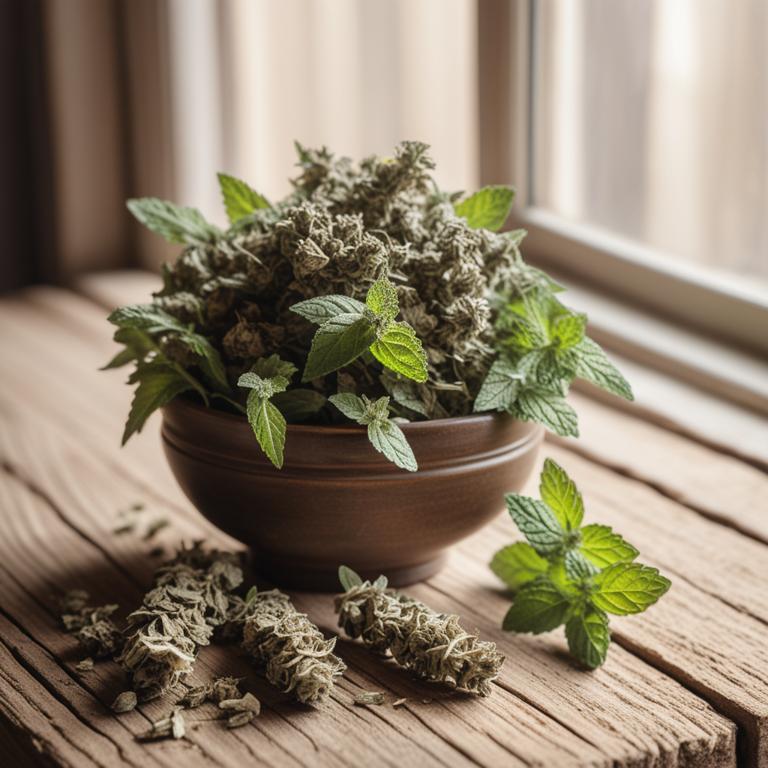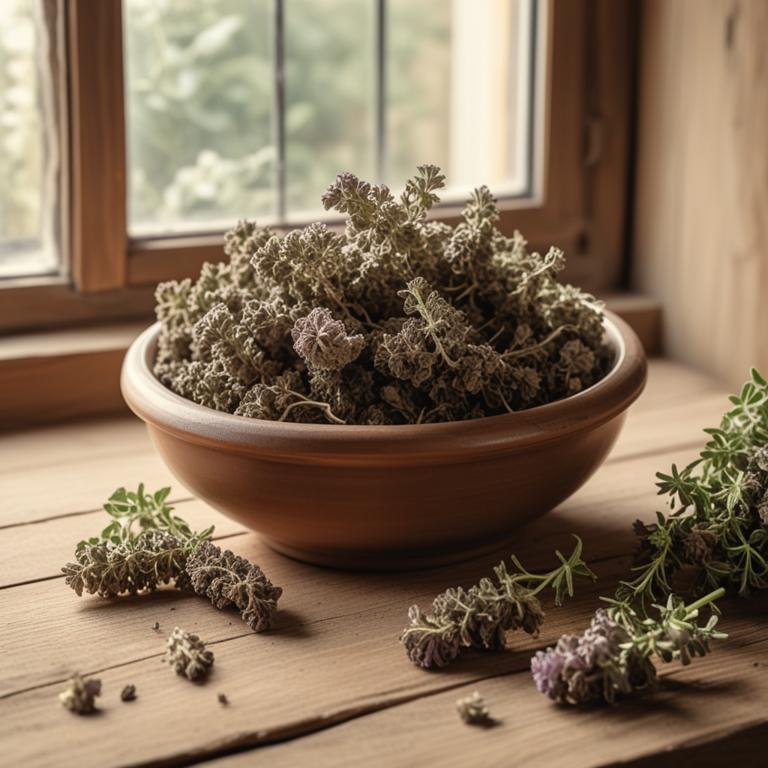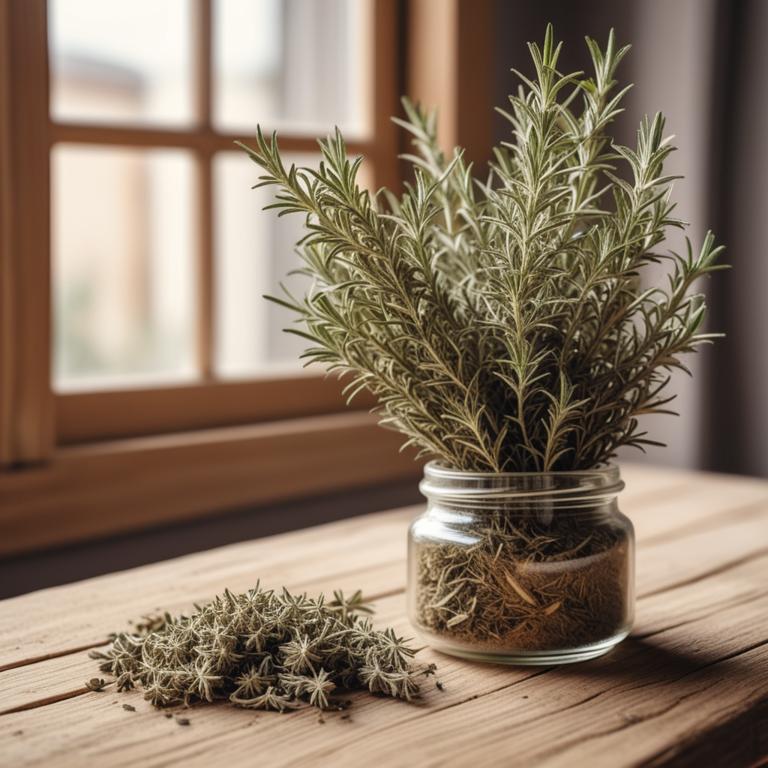Updated: Dec 1, 2024
Chest Congestion: Understanding the Causes and Herbal Solutions
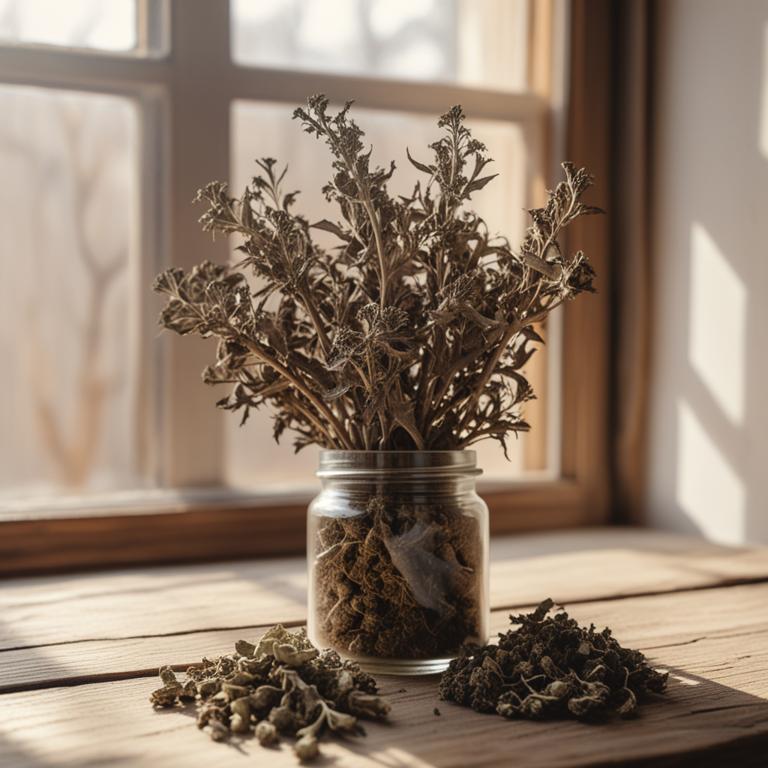
Chest congestion is a common health issue that affects many people.
It makes it hard to breathe and can be very uncomfortable, making everyday activities like walking or even sleeping difficult. Chest congestion is usually caused by a cold, flu, or allergies, which can irritate the airways and fill them with mucus. This can be frustrating and impact your daily life. Fortunately, herbal remedies can provide relief from chest congestion. Herbs like thyme, eucalyptus, and ginger have natural decongestant and anti-inflammatory properties that can help soothe the airways and reduce mucus production.
These herbs have been used for centuries to treat respiratory issues and can be prepared in various ways to make them easy to consume. To use these herbs, you can make teas by steeping dried thyme, eucalyptus leaves, or ginger roots in hot water. You can also take them in capsule or tincture form. Another option is to inhale the vapors of these herbs by adding them to a steam inhaler or a hot bath. This can help loosen mucus and ease congestion quickly.
Some herbal cough syrups and lozenges also contain these herbs, providing a convenient way to get relief from chest congestion.
Table of Contents
- What are the causes of chest congestion in the body?
- What are the benefits of incorporating herbs into the treatment of chest congestion?
- What medicinal herbs are commonly used to alleviate chest congestion?
- What are the most popular herbal treatments for chest congestion?
- Are there any herbs you should steer clear of if you have chest congestion?
- FAQ
What are the causes of chest congestion in the body?
The main causes of chest congestion are a group of conditions that affect the lungs and airways, making it difficult to breathe and causing discomfort in the chest area.
Pneumonia is a serious infection that inflames the air sacs in the lungs, filling them with fluid and mucus, which causes congestion. Bronchitis is an inflammation of the airways that can be caused by a viral or bacterial infection, leading to a buildup of mucus in the lungs and airways.
Pleurisy is an inflammation of the lining surrounding the lungs, which can cause pain and difficulty breathing due to the buildup of fluid between the lungs and the chest wall. Asthma is a chronic condition that causes the airways to narrow and swell, trapping mucus and air in the lungs and leading to congestion.
All of these conditions can be triggered by a variety of factors, including viral infections, bacterial infections, allergies, and environmental irritants like pollution and smoke.
What are the benefits of incorporating herbs into the treatment of chest congestion?
When you have a chest congestion, using herbs can be really helpful.
One of the main benefits is that they can help loosen and clear out the mucus from your lungs. This can make it easier to breathe and reduce coughing.
Some herbs can also reduce inflammation in the airways, which can help ease congestion and make it feel like you're getting better faster. Additionally, herbs can be used to calm the body and mind, which can help you relax and get a good night's sleep, even when you're feeling unwell. They can also be used to soothe a sore throat and help ease a cough.
Plus, many herbs have antibacterial properties, which can help fight off infections that can cause chest congestion.
What medicinal herbs are commonly used to alleviate chest congestion?

Herbs can be a great help when you're dealing with chest congestion.
Let's take a look at some of the most effective ones. Eucalyptus globulus is a key player here - its oil contains compounds like eucalyptol that help break down mucus, making it easier to breathe. When you inhale eucalyptus oil, its decongestant properties get to work, loosening up that thick, sticky mucus and helping you clear your airways. Echinacea purpurea, also known as coneflower, is another herb that's been used for centuries to combat respiratory issues. It's packed with antioxidants that help reduce inflammation in the body, which can contribute to congestion. By fighting off infection and soothing your airways, Echinacea purpurea helps your body recover faster and feel better sooner. Thymus vulgaris, or thyme, is a natural antibacterial agent that's been shown to combat infections that can cause congestion.
Its active compounds, like thymol, have antimicrobial properties that kill off bacteria and other pathogens, giving your body a fighting chance to clear out the infection. Plus, thyme's expectorant properties help bring up mucus and phlegm, making it easier to breathe. Mentha x piperita, or peppermint, is another herb that can help ease congestion. Its menthol content helps relax your airways and loosen mucus, making it easier to cough up. Peppermint oil can also help ease sinus pressure and open up your airways, giving you more room to breathe. Last but not least, Zingiber officinale, or ginger, is a natural anti-inflammatory that can help reduce swelling in your airways. Its compounds like gingerol and shogaol have anti-inflammatory properties that help soothe your airways and reduce congestion. By fighting off inflammation, ginger helps your body recover faster and feel better sooner.
When you combine these herbs with a healthy lifestyle and proper medical care, you can find relief from chest congestion and get back to feeling your best.
What are the most popular herbal treatments for chest congestion?

When you have a congested chest, it can be really hard to breathe.
Herbal preparations can be a great help. A decoction is a liquid made by steeping herbs in hot water. It's perfect for congestion because the hot water helps to loosen up the mucus in your chest, making it easier to cough up. For example, a decoction of thyme and eucalyptus can help to clear your airways. A tincture is a concentrated liquid made by mixing herbs with a solvent like water or alcohol. You can take tinctures by mouth, and they can help to ease congestion from the inside out. Thyme and eucalyptus tinctures are again good for clearing your chest, and you can also try a tincture of wild cherry bark to help reduce coughing. A poultice is a paste made from herbs that you apply directly to your skin. It's especially good for congestion in the chest area.
You can make a poultice with warm herbs like thyme and eucalyptus, and apply it to your chest to help loosen up the mucus. The heat from the herbs can also help to soothe any soreness in your chest. A salve is a topical cream or ointment made from herbs. You can apply it to your skin to help ease congestion and coughing. Salves are especially good for dry, irritated skin, which can be a problem when you have a congested chest. Look for salves made with herbs like eucalyptus and peppermint to help clear your airways and soothe your skin. Finally, an infusion is a liquid made by steeping herbs in hot water. It's similar to a decoction, but the herbs are steeped for a shorter time. Infusions are great for making a soothing tea that can help to ease congestion.
Try making an infusion with herbs like thyme, eucalyptus, and licorice root to help calm your chest and clear your airways.
Additional Resources:
Are there any herbs you should steer clear of if you have chest congestion?
If you're dealing with chest congestion, it's essential to be careful with the herbs you use.
Rosmarinus officinalis, also known as rosemary, can help with breathing issues, but in large amounts, it can dry out your airways even more, making congestion worse. This is especially true if you're using it in the form of essential oil or tea, which can be very potent. Another herb to be cautious with is Salvia miltiorrhiza, commonly used to treat cardiovascular issues. However, it can also cause your airways to constrict, making it harder to breathe. This is not what you want when you're already struggling with congestion.
Lavandula angustifolia, or lavender, is often used for its calming effects, but it can also be a problem for people with respiratory issues. The oils in lavender can irritate your airways, making congestion even worse. Ginkgo biloba is an herb often used to improve circulation, but it can also cause your airways to constrict. This can make it more difficult to breathe, especially if you're already congested. Lastly, Panax ginseng is an herb often used to boost energy, but it can also have the opposite effect on people with respiratory issues. It can dry out your airways, making congestion worse.
These herbs can be beneficial for many people, but when you have chest congestion, it's best to avoid using them, especially in large amounts or in the form of essential oils.
FAQ
Are there any specific herbs that can prevent chest congestion?
Ginger and eucalyptus are two herbs that can help with chest congestion.
Ginger has natural decongestant properties and can ease coughs, while eucalyptus oil helps loosen mucus in the lungs.
You can drink ginger tea or inhale eucalyptus oil vapors to see if they help clear up your congestion.
Is it safe to use herbal remedies for chest congestion during pregnancy?
When you're pregnant and have chest congestion, it's essential to be careful about what you try.
Some herbal remedies might help ease your symptoms, but it's not a good idea to use them without checking if they're safe for you and your baby.
Certain herbs can cause problems or interact with other things you're taking.
Are there any herbs that can reduce the frequency of chest congestion?
Thyme and eucalyptus are two herbs known to help ease chest congestion.
Thyme's decongestant properties can thin mucus, making it easier to expel, while eucalyptus' expectorant properties can help loosen and clear out congestion.
Drinking tea made with these herbs may help reduce the frequency of chest congestion symptoms.
Related Articles

The Dry Nose Dilemma: Causes, Herbal Preparations, and More
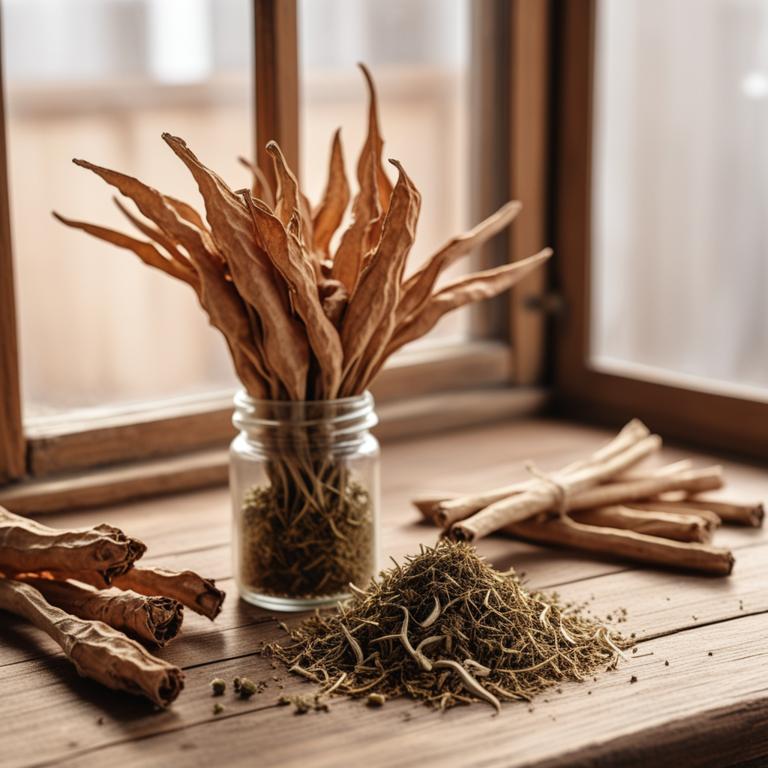
Cough Causes and Natural Cures: The Power of Herbal Preparations
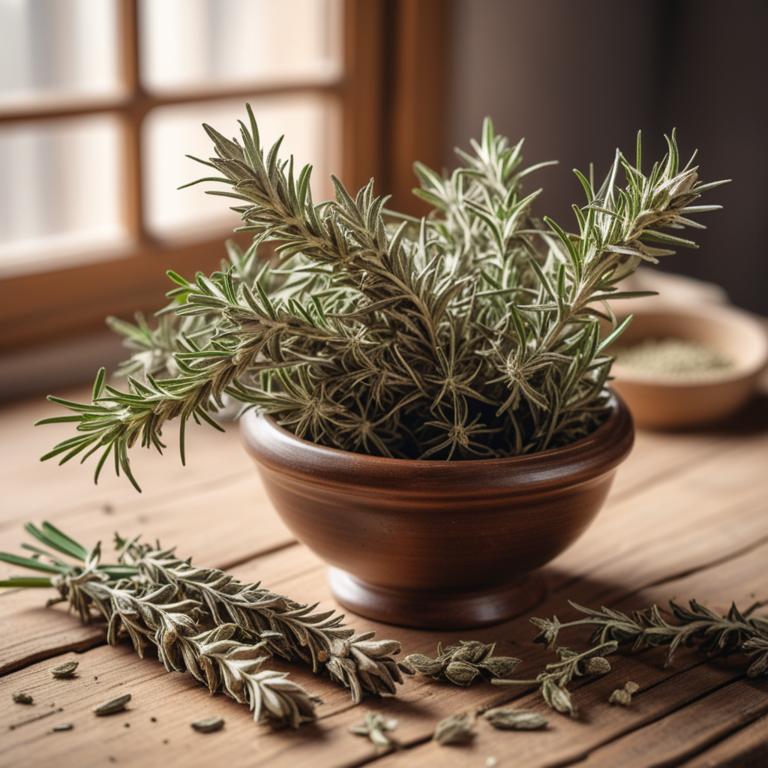
Understanding Sinusitis: Causes, Herbal Remedies, and Natural Treatments
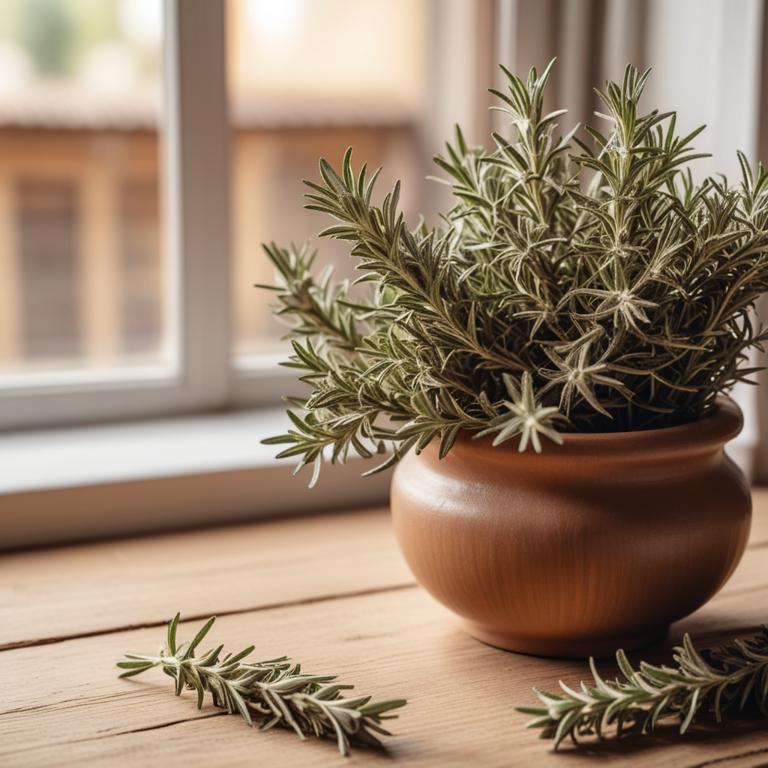
Wheezing Treatment with Medicinal Herbs and Herbal Preparations
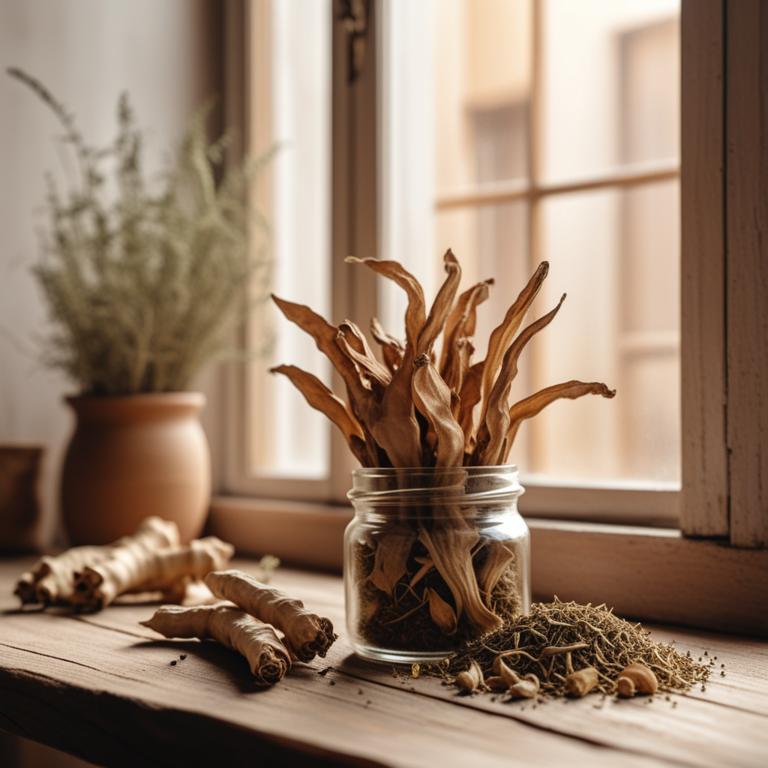
Understanding and Treating Dry Cough with Medicinal Herbs and Herbal Preparations
